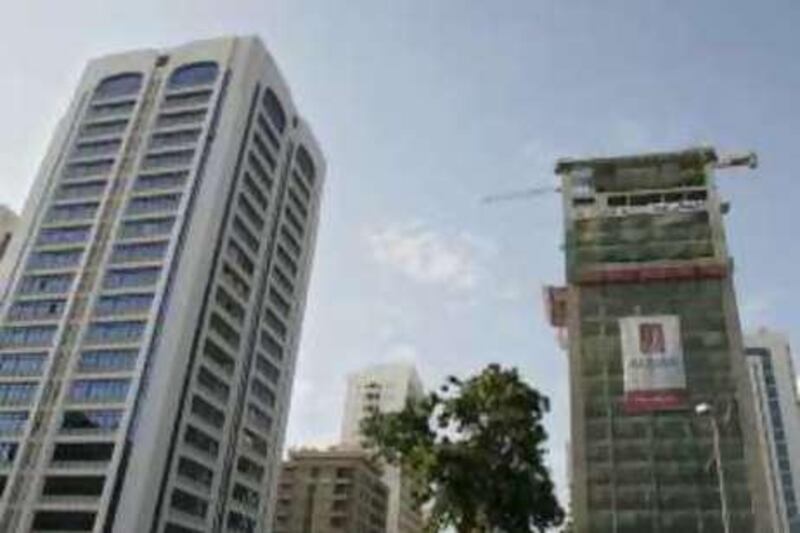With property prices and rentals at record levels, middle-income residents in the capital are confronted with an increasingly precarious dilemma of whether to purchase their homes or live risk-free as tenants. Gaurav Dolwani, a consultant at Dolcho Real Estate in Abu Dhabi, said a shortage of available properties compounded the problem and pushed up prices beyond the means of many salaried people. "It is difficult for middle-income earners to invest, due to the ever increasing prices year after year," he said.
Mr Dolwani estimated that there was currently a shortage of up to 50,000 units in the capital. This deficit is expected to grow, along with Abu Dhabi's rapidly expanding population, which analysts say will increase by around 20 per cent a year for the next seven years. The average selling price for residential property now ranges between Dh1,300 (US$354) and Dh1,700 per square foot, according to a study by Sorouh Real Estate, a brokerage in Abu Dhabi.
This has resulted in a construction boom in the city, however the flow of new properties onto the market has yet to result in a drop in prices, consumers say. "A few months ago, there was an opportunity due to the rising prices, but now it has become an agony," said Vikram Handa, a resident of Abu Dhabi and an active property speculator. "The developers are launching properties at even higher prices than the secondary market."
Mr Handa said that in the past he had invested in property and earned profitable returns, but the high prices now being asked had become a deterrent, and he was reluctant to buy at these levels. Abu Dhabi's property boom is being underpinned by the extraordinary inflow of earnings from oil, which in recent weeks has reached record high prices. According to a report from Merrill Lynch, Gulf countries could currently be earning up to $1 billion a day in oil revenues.
Abu Dhabi is channelling a significant portion of this into economic diversification programmes as a hedge against the day when oil is no longer the world's primary energy source. Property is a cornerstone of this shift, and analysts say that more than $200bn will be spent in the next five years on resorts, hotels, apartments and commercial buildings in the capital. Aldar, for example, one of the region's largest developers, has projects worth $72bn on its books.
However, construction costs have surged by 50 per cent since the beginning of the year, as energy inflation feeds into the price of cement, steel and labour, according to estimates from Al Mazaya Holding, a developer base in Dubai. This has threatened to slow the pace of construction, which could prolong the shortage of housing and the cycle of price escalation. Some consumers fear a US-style property bubble could be developing. Earlier this year, Colliers International warned in a report that even though fundamentals were positive, signs of overheating were beginning to appear.
As a result, some consumers are opting to rent instead. "I am content renting a three-bedroom villa at Dh86,000 per annum, and am completely disinclined to purchase property in Abu Dhabi, even if the rent prices do increase by 50 per cent," said one resident, Faisal Ibrahim.






